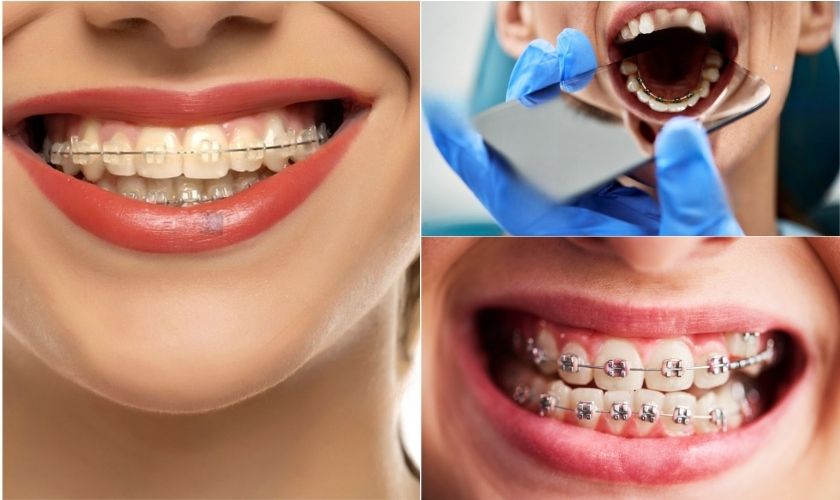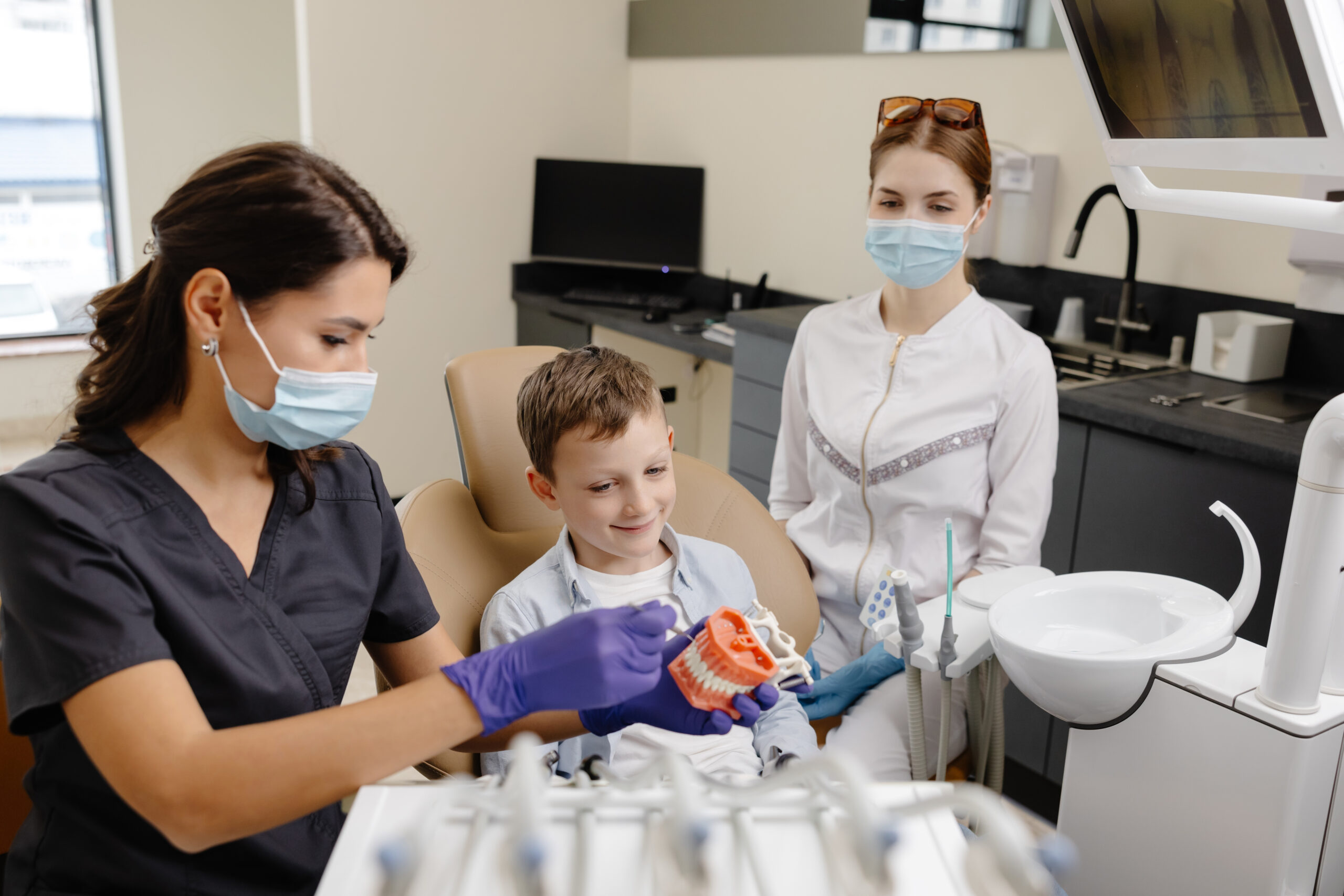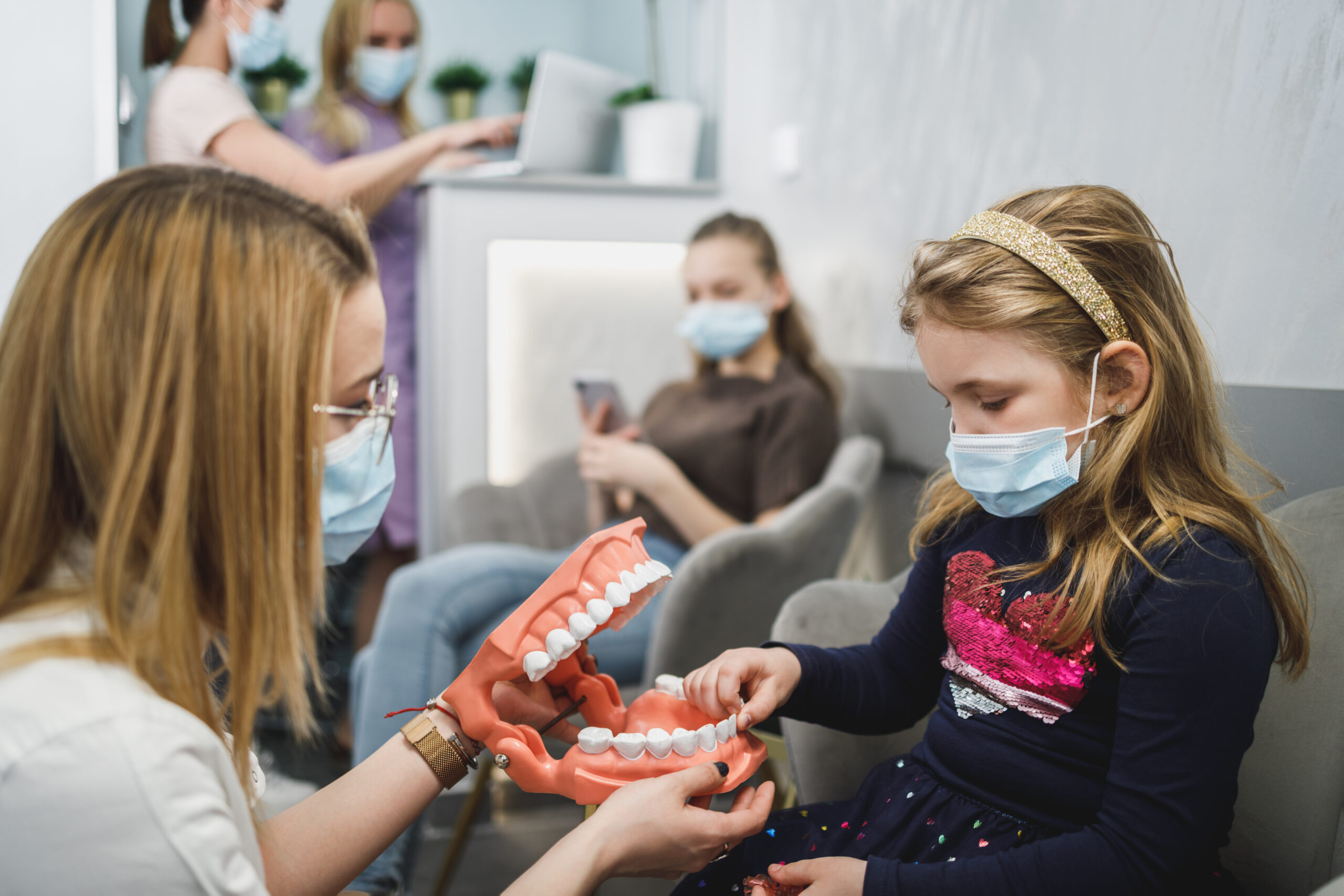A shocking 21% of American children aged 2-5 have cavities. One in five preschoolers faces dental problems before kindergarten even begins.
Many parents wait until their child turns 7 or experiences tooth pain before scheduling a dental visit. The CDC, American Academy of Pediatrics, and American Dental Association recommend a different approach – your child should see a dentist by their first birthday. Your child’s risk of tooth decay almost doubles each year you wait beyond age one.
Your child’s first dental visit plays a vital role in reducing fears about dental treatment. Early dental care creates healthy habits that protect baby and permanent teeth. Most parents don’t give baby teeth much attention because they seem temporary, but this thinking can cause serious problems.
This piece will show you why baby teeth deserve more attention than you’d expect. You’ll learn the right time for your child’s first dental visit, what happens during the appointment, and simple ways to keep your little one’s teeth healthy from day one.
Why Baby Teeth Are More Important Than You Think
Baby teeth aren’t just temporary placeholders. These primary teeth play a significant role in your child’s development that goes way beyond their brief time in your child’s mouth.
They help with speech and chewing
Primary teeth are the foundations of clear speech development. Front teeth matter a lot, especially to pronounce sounds like “s,” “th,” and “f”. Children with unhealthy baby teeth often struggle to express words properly and this can lead to speech delays or unclear pronunciation. These teeth help control tongue placement during speech, which helps form distinct sounds and develop proper communication skills.
Baby teeth let children chew food really well, which starts the process of healthy digestion and proper nutrition. Your child’s physical development and growth patterns improve by a lot when they can break down food properly.
They guide permanent teeth into place
Baby teeth work like nature’s perfect space maintainers. They act as guides or “GPS” for adult teeth and hold proper spacing in the jaw until permanent teeth emerge. Neighboring teeth might move into empty spaces when a baby tooth falls out too soon due to decay or injury.
This movement creates a chain of problems:
- Permanent teeth might come out in wrong positions
- New teeth can become crowded or misaligned
- Misaligned teeth make cleaning harder and increase disease risk
- Your child might need expensive and time-consuming orthodontic treatment
Dentists often suggest space maintainers—small metal devices that keep the gap open until the permanent tooth is ready to come through.
Untreated decay can affect overall health
Tooth decay is the most common chronic disease in children—about five times more common than asthma and seven times more than hay fever. About 23% of children get cavities before they turn five, and dental caries affect 37% of children aged two to eight.
Untreated decay causes problems beyond oral health:
- Decayed teeth hurt and scare children
- Bad decay disrupts eating and sleeping patterns and can slow growth
- Tooth infection bacteria can travel to the brain in extreme cases with life-threatening results
- Studies link untreated decay to low body mass
- Dental problems affect social, emotional, and intellectual growth

Diet and dental hygiene habits that start during infancy and toddlerhood reduce tooth decay risk by a lot as children grow older. Healthy baby teeth pave the way to good dental health, letting children smile with confidence, speak clearly, and eat properly.
Note that early dental visits can prevent these health issues and create positive dental experiences that last forever.
When Should a Child Have Their First Dental Visit?
Parents often ask me about the right time to take their child to the dentist. The answer might catch you off guard—it’s way earlier than what most families think.
Recommended age for first dental visit
Leading health organizations have made their stance clear: your child should see a dentist by their first birthday or within six months after their first tooth shows up. This guidance comes from trusted sources like the American Academy of Pediatric Dentistry, American Dental Association, American Academy of Pediatrics, and American Public Health Association.
Notwithstanding that, data shows a troubling trend—85% of children in some areas don’t see a dentist until they turn 17. Most kids have their first dental visit between ages 6 and 9, which is nowhere near early enough based on today’s standards.
Why early visits prevent future problems
Early checkups are a great way to get long-term benefits. They help create what dentists call a “dental home”—where your child builds an ongoing relationship with a dental practice. These original visits also give dentists a chance to teach parents about oral hygiene, fluoride use, and healthy eating habits.
The numbers paint a stark picture. Each year parents wait beyond age one to schedule their child’s first dental visit doubles the risk of cavities. Here’s something even more eye-opening: a five-year-old seeing the dentist for the first time has almost 20 times higher chances of developing cavities compared to a child who started at age one.
To cite an instance, see this fact: tooth decay affects all but one of these five children under age 5. Dental problems can quickly get worse and lead to:
- Most important pain and eating difficulties
- Unnecessary emergency room visits
- Lost school hours (over 34 million hours each year)
- Spread of infections throughout the body
Signs your child is ready for a dental first
Age recommendations help guide parents, but specific signs tell you it’s time for that first visit:
Your baby’s first tooth usually appears around 6 months—that’s your clearest signal. Your child’s personality, development stage, and oral health can affect their readiness.
Watch for early tooth decay signs like dark spots on teeth or sensitivity to hot and cold. It also helps to ask a dentist about ongoing teething pain or habits like thumb-sucking that won’t stop.
Starting a gum-cleaning routine before teeth appear helps your child get used to daily mouth care. This practice makes their first dental visit less scary. Dentists spend these early visits building trust while checking if everything’s developing properly.
Note that these first visits are short—usually 30-45 minutes—but they set up good oral health habits that last a lifetime.
What to Expect at the First Dental Visit
Your child’s first dental appointment marks an exciting milestone that might bring a mix of joy and nervousness. A clear picture of what happens during this visit will help calm your concerns and create positive dental experiences.
How the dentist gets into baby teeth
The first dental visit usually takes 30 to 45 minutes. Your dentist will review your child’s medical history and talk about any concerns you’ve noticed when you arrive.
Dentists often use a “knee-to-knee” position for younger children (6-18 months). Your child sits in your lap and leans back onto the dentist’s lap. Older toddlers (19-30 months) might sit on a small stool in front of you and lean their head back on your lap.
The dentist checks:
- All existing teeth for decay
- Your child’s bite arrangement
- Jaw development
- Gum health and oral tissues
Your child’s age and comfort level determine if the visit includes a gentle cleaning to remove plaque and tartar, among polishing of the teeth. The dentist might apply fluoride treatments to strengthen developing tooth enamel and prevent decay.
Parental education during the visit
The dentist shares valuable guidance about your child’s oral health throughout the appointment. This learning experience matters just as much as the checkup itself.
You’ll learn proper brushing techniques for baby teeth and the right amount of fluoride toothpaste to use (just a grain-of-rice sized amount for very young children). The dentist will also cover:
- Good oral hygiene practices to prevent cavities
- What to expect with teething and how to manage it
- Nutrition choices for healthy teeth
- How thumb-sucking and pacifier use affect teeth
- Ways to prevent baby bottle tooth decay
Some parents think treating baby teeth isn’t worth the effort since they’ll fall out anyway. Dentists stress that these primary teeth play a crucial role in speech development, eating ability, and guiding permanent teeth into their proper positions.
Common questions parents can ask
Good questions help you make the most of this first visit. Here’s what you might want to ask:
- “How is my child’s overall dental development progressing?”
- “What foods and drinks should we limit to protect their teeth?”
- “How can we make brushing more enjoyable?”
- “Would dental sealants benefit my child?”
- “How should we handle teething discomfort?”
- “What should we do if a dental emergency occurs?”
It’s worth mentioning that children might feel anxious or cry during their first visit – that’s perfectly normal. Building trust and familiarity with the dental environment takes priority, even if the full examination needs more than one session.
A positive approach to this milestone will help build the foundation for your child’s lifelong dental health.
Daily Dental Care Tips for Young Children
Your child’s dental health starts with good oral hygiene habits at home, well before their first dental visit. These habits are the life-blood of lasting dental wellness.
Brushing and flossing basics
Start brushing your child’s teeth right when the first tooth appears. A soft, damp cloth works well to clean your baby’s gums after feedings—even before teeth emerge. Brush teeth twice daily for two minutes. Use gentle circular motions at a 45-degree angle toward the gums.
Most children need supervision with brushing until they reach 8-10 years. Young kids lack the proper hand coordination for effective brushing until about age 6. You can help them learn by guiding their hand to feel the right movement or showing them the technique in a mirror.
Your child should start flossing once two teeth touch each other, usually around ages 2-3. Make daily flossing a habit by using either the spool method (wrapping floss around fingers) or loop method (tying floss in a circle).
Fluoride and toothpaste use
Fluoride makes tooth enamel stronger and fights decay. Kids under 3 need just a rice grain-sized smear of fluoride toothpaste. Children between 3-6 years should use a pea-sized amount.
Research shows that about 38% of children aged 3-6 years use too much toothpaste. Swallowing excess fluoride regularly during tooth development can lead to fluorosis—white spots on teeth.
Healthy eating habits for strong teeth
Food choices directly affect your child’s dental health. Strong teeth need calcium-rich foods like dairy products, broccoli, and leafy greens. Crunchy fruits and vegetables with high water content (like apples, celery, carrots) naturally clean teeth and boost saliva production.
Sugary foods and drinks feed harmful bacteria, so limit these items. Between meals, water works better than juice or soda.
Avoiding bottle feeding at bedtime
Babies who go to bed with bottles of milk, formula, or juice face a higher risk of tooth decay. Two-year-olds who bottle-feed at bedtime are almost twice as likely to become overweight in early childhood. Three-year-olds using bottles at bedtime show nearly double the tooth decay.
Water makes a safer bedtime drink choice than milk or juice. For babies under one year, try these practical tips:
- Take away the bottle once they drift off during feeding
- Switch from bottles to cups around 6 months
- Stop bottle use completely by their first birthday
Early dental care routines help your child develop positive attitudes toward dental visits throughout life.
Choosing the Right Dentist for Your Child
Your child’s future relationship with dental care largely depends on finding the right dentist. This choice can shape their attitude toward oral healthcare throughout their life.
Pediatric vs. general dentist
Pediatric dentists spend two to three extra years in specialized training after dental school. Their education focuses on child psychology, behavior management, and growing mouths’ unique dental needs. These specialists work only with children, which helps them master treatments for baby teeth and mixed dentition. Their advanced training covers safe sedation practices, growth-related dental issues, and ways to build trust with young patients. These dentists understand that children need different treatment approaches than adults.
What to look for in a dental office
The right dental office creates a welcoming environment for kids. A good practice features cheerful, colorful spaces with furniture sized just for children. Kids should find toys, books, and fun activities in the waiting area. The practice should also use dental equipment designed specifically for little mouths.
Staff behavior matters more than office decorations. Great pediatric dental teams show endless patience and genuine care while communicating clearly with young patients. The office location and hours should also fit your family’s daily routine.
How to prepare your child emotionally
Talk about the upcoming dental visit with your child using simple words they understand. Reading stories about dental visits or playing pretend dentist with stuffed animals helps kids feel more comfortable. Parents should avoid sharing scary stories or negative dental experiences. Your child needs encouragement for their bravery before and after the visit.

Conclusion
Parents often underestimate how baby teeth affect their child’s development. Good oral health habits from the start help create a lifetime of healthy smiles. The numbers tell a clear story – dental problems already affect 21% of preschoolers, which makes early care a vital part of child health.
Those tiny first teeth do more than just fill your baby’s smile. They let your child speak clearly, eat properly, and save space for permanent teeth. Tooth decay can disrupt overall health and change how children eat and interact with others.
Your child’s first dental visit should happen before their first birthday. This early start reduces cavity risks better than waiting until kindergarten age. The first appointment includes a gentle checkup, cleaning, and tips about proper care methods.
Good oral health starts with daily care habits. Begin brushing when you spot that first tooth, and use the right amount of fluoride toothpaste for your child’s age. Healthy food choices help keep teeth strong. Note that nighttime bottles should only contain water to prevent decay.
The right dentist can transform your child’s dental experience. Pediatric dentists have special training and create kid-friendly spaces that help children feel positive about dental visits from day one.
Baby teeth might not last forever, but they shape your child’s dental future. Regular dental checkups, proper home care, and the right dental team will help protect your child’s smile. These little teeth need plenty of attention to keep that smile bright and healthy.
FAQs
Q1. Why are baby teeth important for a child’s development?
Baby teeth play crucial roles in speech development, proper chewing, and maintaining space for permanent teeth. They help children articulate words clearly, chew food effectively for proper nutrition, and guide adult teeth into their correct positions.
Q2. When should a child have their first dental visit?
A child should have their first dental visit by their first birthday or within six months after their first tooth appears. Early dental checkups help prevent cavities, establish good oral hygiene habits, and reduce the risk of future dental problems.
Q3. How should parents care for their baby’s teeth?
Start cleaning your baby’s gums with a soft, damp cloth even before teeth appear. Once teeth emerge, brush twice daily using a small, soft toothbrush and a rice grain-sized amount of fluoride toothpaste for children under 3. Avoid putting babies to bed with bottles containing milk or juice.
Q4. What happens during a child’s first dental visit?
The first dental visit typically includes a gentle examination of the child’s teeth, gums, and jaw development. The dentist may perform a light cleaning and apply fluoride if necessary. Parents receive education on proper oral hygiene techniques, nutrition advice, and tips for preventing tooth decay.
Q5. Should I choose a pediatric dentist or a general dentist for my child?
Pediatric dentists receive additional specialized training in treating children and are often better equipped to handle young patients. They have child-friendly offices and use techniques specifically designed to make children comfortable. However, many general dentists also successfully treat children, so the choice depends on your child’s specific needs and your family’s preferences.








